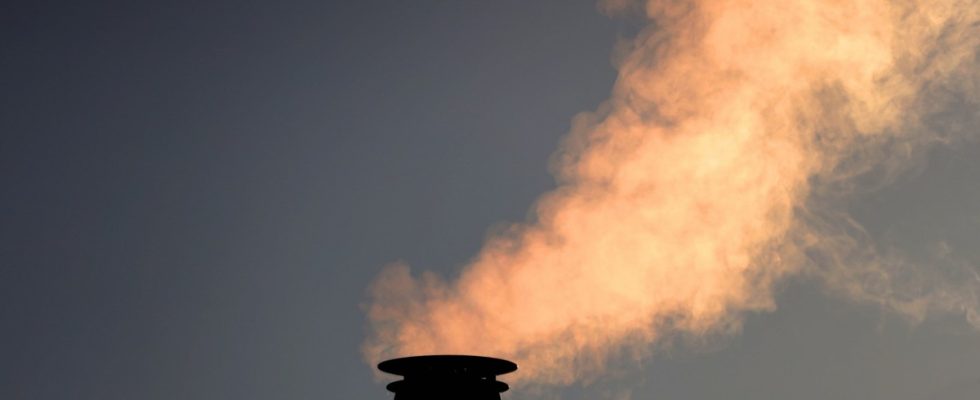Store – or feed in and process: The Bavarian Business Association (VBW) is calling for the development of a transport network for carbon dioxide in the Free State. “We can only achieve climate neutrality with applications for the capture, use and storage of CO₂,” said VBW Managing Director Bertram Brossardt. However, this requires additional transport infrastructure.
For this purpose, the VBW relies on a previously unpublished study that was prepared by the Research Association for the Energy Industry on behalf of the association. The starting point is the question of how the lime and cement industries in this country can become greener. For example, when cement clinker is burned, CO₂ is produced as a result of the chemical process. This is one of the reasons why the study authors assume that despite all climate protection efforts in Bavaria, around ten megatons of CO₂ emissions could remain unavoidable every year. In order to achieve the climate neutrality that the state government is aiming for by 2040, a “holistic carbon management strategy” is necessary – and, among other things, the creation of a “Bavarian core network”.
In very simplified terms, the whole thing could look like this: In the future, unavoidable CO₂ will be captured during production. However, storing or using this directly in the cement works does not appear to be practical, according to the study. Rather, the gas could be made available to the chemical industry as a raw material, for example, in the spirit of the circular economy. A new pipeline network to be built across Bavaria will take over the transport. A first pipeline line in the south could therefore run in a west-east direction via Augsburg, Rosenheim and Burghausen and connect the chemical triangle. A second could cross the north via Würzburg and Nuremberg. Both would be connected by another line, with a connection to the refineries near Ingolstadt and the large cement plant near Schwandorf. This core network could also be combined with a supra-regional network.
According to its own information, the VBW sees the study as a blueprint for further steps. In addition, we must continue to work on avoiding emissions as much as possible, said Brossardt. “We also need speed, speed and more speed in the expansion of renewables.”

